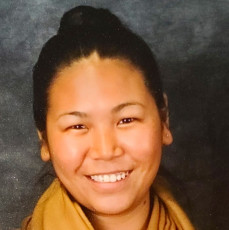I began my Summer by helping WAP set up their new facility for the soap project. Recently as sales grew, WAP invested in a larger facility that will allow them to meet their growing production needs. Ambitiously, we devised a plan of attack to have the facility up and running within a week. Unfortunately, we have encountered many unforeseen challenges. For some setbacks, we were able to mitigate them entirely and find robust long-term solutions. At the same time, for some other tasks, we were forced to pause and reevaluate our strategies.
Transport challenge:
Right off the bat, we faced one of the biggest challenges when WAP’s vehicle broke down. That vehicle was used to meet all WAP’s transport needs, such as bringing WAP participants to the facility for productions and meetings, visiting vendors to acquire raw materials, delivering soaps to the markets, and going to the communities that WAP serves. Aside from interruption to its routine duties, not having a working vehicle had also caused tremendous stress in setting up the new facility. To combat this challenge short-term, we rented a vehicle to continue the work. Though car rental was a temporary solution, it was becoming very costly. WAP was paying around USD 100 a week. Understanding the urgent need for a vehicle, we prioritized our task to finding a long-term transport solution. While the old car was being diagnosed, we identified an organization looking to donate a vehicle in the Harare area. We took this opportunity seriously and submitted a very compelling application. Though the competition was steep, WAP won the battle to receive the vehicle donation. With this achievement, we felt relieved and moved forward to working towards our goals.
Water challenge:
Another big hurdle was having a reliable water source at the new facility. Overall, in Zimbabwe, water shortage is a huge challenge. Water provided by the government is not safe for consumption or available all the time. Therefore, many Zimbabweans take it upon themselves to find a solution for their water needs. A very popular option is borehole water. For USD 40, government permits people to have borehole drilling in their lands to tap into naturally occurring underground water. Many prefer this water source because it is a long-term solution.
As soap production requires a lot of water, WAP and I wanted to explore the borehole drilling possibility. For two days, we visited many borehole drilling companies in Harare and got an idea of how much it would cost. After discussing and analyzing the budget, we recognized that WAP couldn’t afford to invest in borehole water at this time. Therefore, we decided to buy water for production temporarily while working on raising funds for borehole drilling as soon as possible.
Electricity challenge:
The third obstacle was setting up electricity in the new facility. Like water, electricity is not reliable and accessible at all times in Harare. Frequent power cuts are very common. Depending on the area, some people will experience more power cuts than others. Many Zimbabweans invest in solar panels to take advantage of year-round sunshine as a backup energy source to combat this issue.
WAP also invested in solar panels to power up the new facility. Unfortunately, after using it only for a month, the battery that connected the solar energy to the new facility stopped working. WAP suspected the battery sold to them might have been old, though they paid for a new one. WAP and I visited the shop that sold the battery, but the shopkeeper was not cooperative. After multiple failed attempts to get the battery fixed or replaced, we decided to pay him one last visit. This time, we were prepared to file a complaint against him in a police station if he refused to honor the warranty terms. Luckily, the shopkeeper agreed to order a replacement battery and committed to delivering it within two weeks. Though the whole process was very frustrating, we are closer to resolving the issues now. For me, personally, this interaction with the shopkeeper was a learning opportunity to understand how to navigate a tricky situation like that in a completely new culture.
Internet challenge:
Lastly, the challenge of establishing an internet connection at the new facility remains unresolved. Since the new facility is in a very new area, as of now, there is only one internet provider. Currently, the internet company is providing only 100 network lines in the area. This number has been exhausted already. There is a plan to extend the service line, but the network company is not sure when. Therefore, at this point, WAP plans to put its name down on the waiting list, hoping that when the network extends, we will have access to the internet. For the time being, we have been using my house as an office for all internet needs, such as conducting research and attending meetings.
Overall, there were many setbacks, but we have made tangible progress so far. We have successfully resumed production and are set to meet our production targets for the year. These challenges have taught us many valuable lessons as an organization. At a personal level, I found these setbacks allowed me to enhance my leadership skills, such as quick thinking, adapting, and evaluating short- and long-term solutions. Most of all, I learned to move towards bigger goals with agility and practicality.
Posted By Dawa Sherpa
Posted Jun 23rd, 2022


1 Comment
Iain Guest
July 12, 2022
Dawa, this will rank as an indispensable blog! Exactly the sort of check list we need – and a list of things that must be addressed while you’re there. I can’t tell you how thrilled we all are that you’ve been able to find a car for WAP. That is absolutely HUGE and will make their job so much easier in the months ahead. Great work!